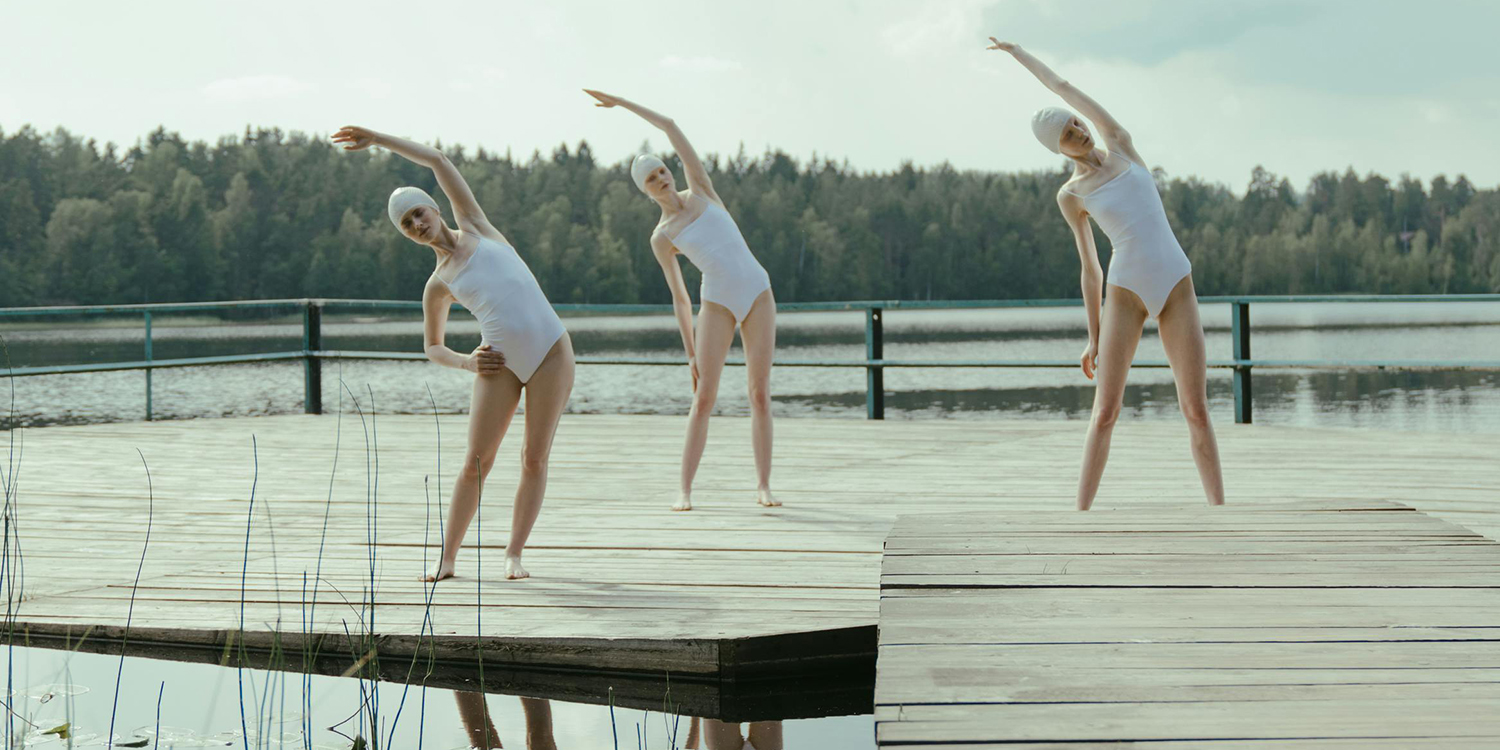Stretching is crucial, not only in limiting injury, but also to get the most out of your outdoor swim
People are often hesitant to include stretching when cold-water swimming, but as physiotherapists and swim coaches will tell you, the benefits for your health are plenty.
That’s why Plunge has put together this helpful guide to the benefits stretching can have for your outdoor swim, so you can hit the next chilly body of water more confidently.
Before your swim
According to open water swim coach, Sue Lord, the best way to prepare your body for swimming in icy water is through gentle mobility exercises (also known as dynamic stretches). She has over 20 years of swim teaching experience and swears by these kinds of stretches, practising them all year round, but particularly in the winter months when the water is even colder.
“Pre-swim mobility sets my body up for the impending swim. I know I am warmed up, but that I haven’t over stretched cold muscles which may put me at risk of injury,” Sue explains. Dynamic stretches involve fluid motion and extend your muscles gently. This makes sure they are flexible enough for any upcoming physical activity (whether for treading water or your favourite stroke).
If you attempt to swim without stretching, you put yourself at extra risk of damage such as joint pain and muscle strains. Your muscles may be too tight to extend and perform the required physical movements involved, causing injury when you attempt them.
Sue says that she would never perform static stretches (ones that do not involve fluid motion) on cold muscles. “This helps me protect my body from injury and safeguards my shoulders which I do have to manage carefully from years of swimming,” she adds.
These sentiments are echoed by Steve Lodge, a qualified swim coach and retired sports physiotherapist. He explains the biology behind fatigue and how stretching can help stop muscles cramping up: “By stretching pre-swim, the Golgi tendon organ in the muscles allows them to stretch which in turn allows a more fluid distribution of glycogen (sugar) through the bloodstream.”
He adds that stretching is therefore more beneficial to people spending longer periods of time in the water such as long-distance swimmers as they are more prone to cramping as their bodies’ glycogen levels deplete.
After your swim
When it comes to how useful stretching is after cold-water swimming, Sue and Steve are more divided. For Sue, stretching after a swim stops her body from seizing up and decreases the recovery time for her muscles.
She says: “I always stretch after a swim to ensure my body recovers correctly. The longer the swim, the more time I take stretching afterwards; holding stretches for longer.” Post swim Sue recommends static stretches as your body is already fully warmed up and should be able to handle stretches that do not involve fluid movement.
Steve, on the other hand, believes there is probably little benefit to a post-swim stretch. He says: “In my honest opinion, it is better to allow the muscles to contract (through the cold) which will inhibit the build-up of lactic acid.” Muscle cramps are caused by lactic acid build-up so this method may ease any cramping pain faster.
At the end of the day, it is up to you to do what feels right for your body, but you should always try to contact your doctor or another healthcare professional for advice if unsure.
Excuses, excuses
“Stretching, like so many things, is a case of ‘if you don’t use it, you’ll lose it’, so it is something that should be done frequently,” argues Steve.
The most common excuses he hears are that a person doesn’t need to stretch because they are not an elite swimmer, or that they don’t have time to fit stretches into their routine. However, stretching can be involved as part of preparing for your swim.“Putting on a wet suit or swimming costume can involve a stretch, and so can hanging onto a door frame in a changing room,” he says.
Steve admits that he is too often guilty of making both excuses, and believes that as an ex-footballer and ex-physio he should know better.
The benefits clearly outweigh the brief amount of daytime sacrificed to stretch properly. If avoiding injury doesn’t sway you to give stretching a go, then just think of the raised body temperature the increased blood flow can cause. Who doesn’t want to be that little bit warmer when they take the plunge?

